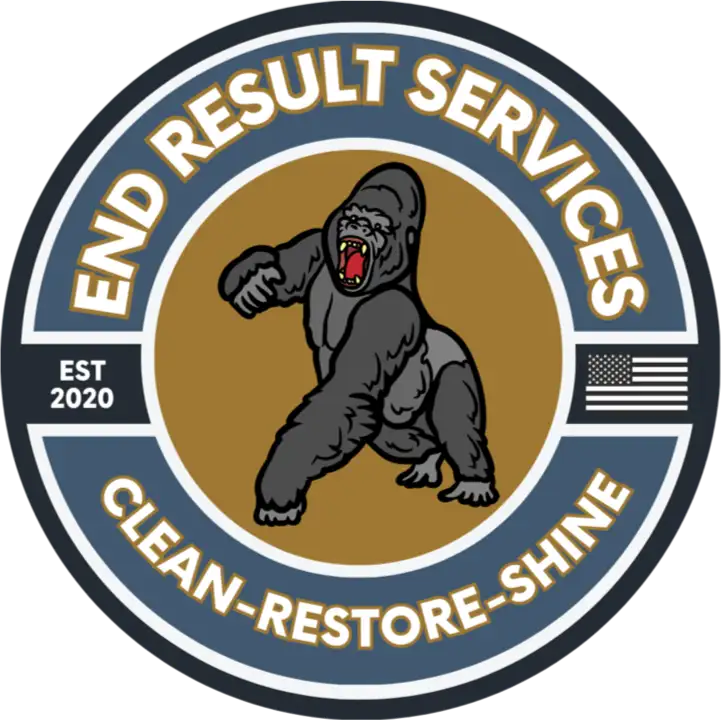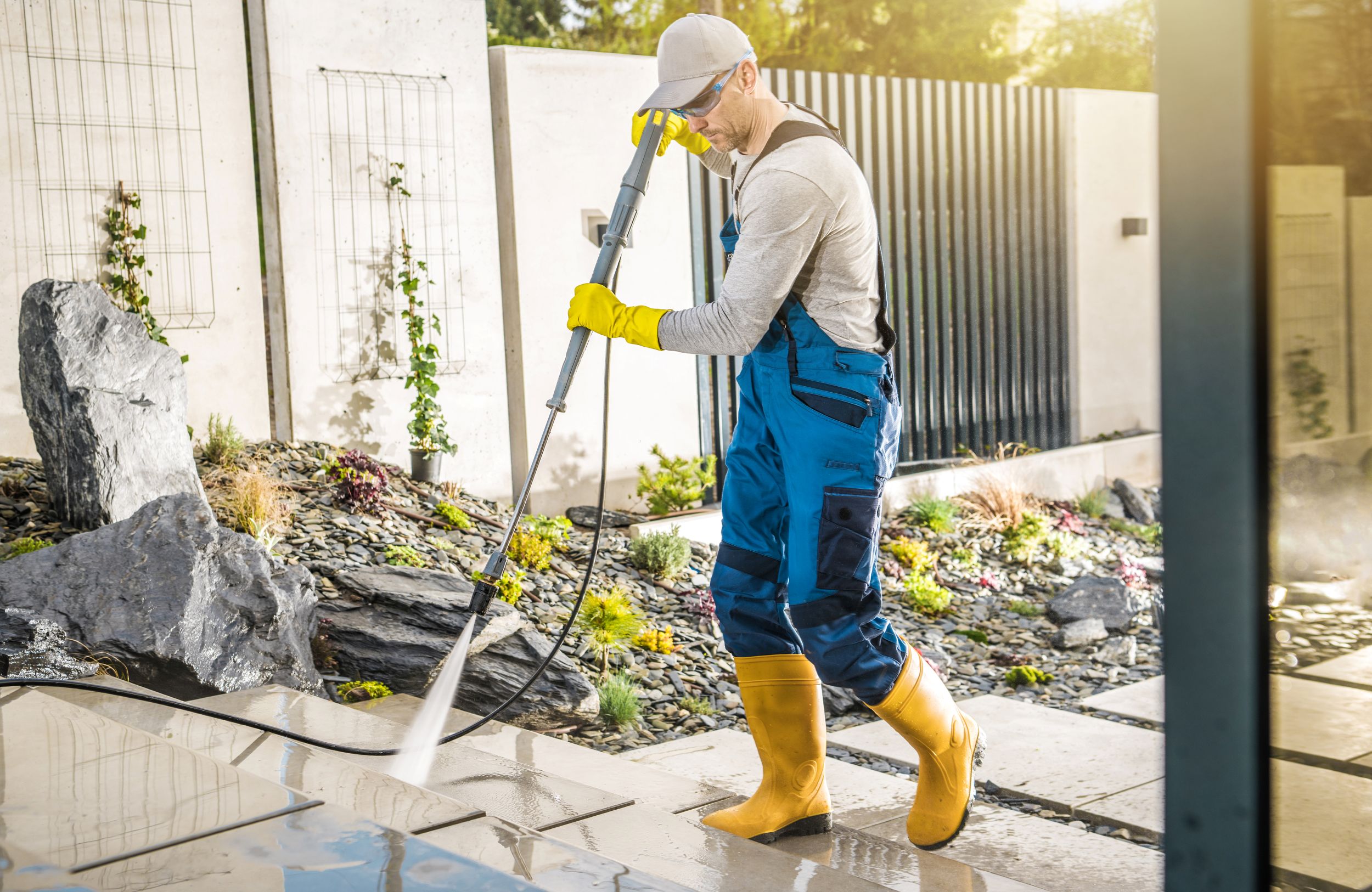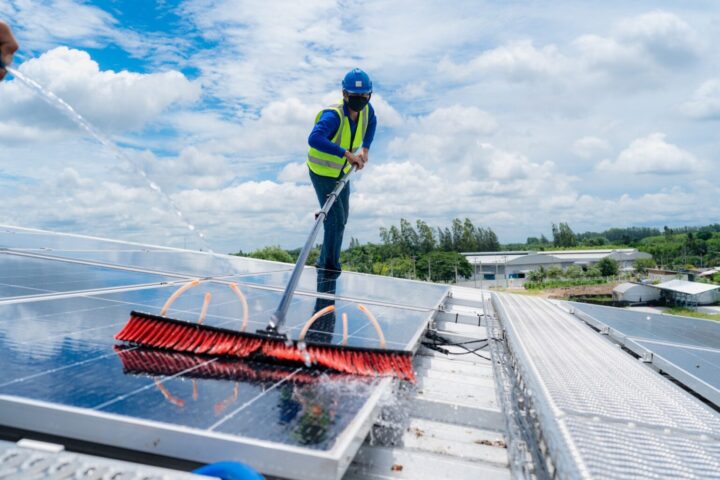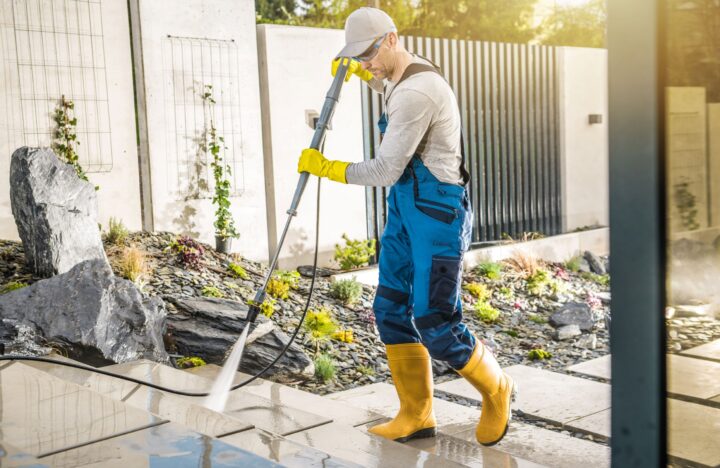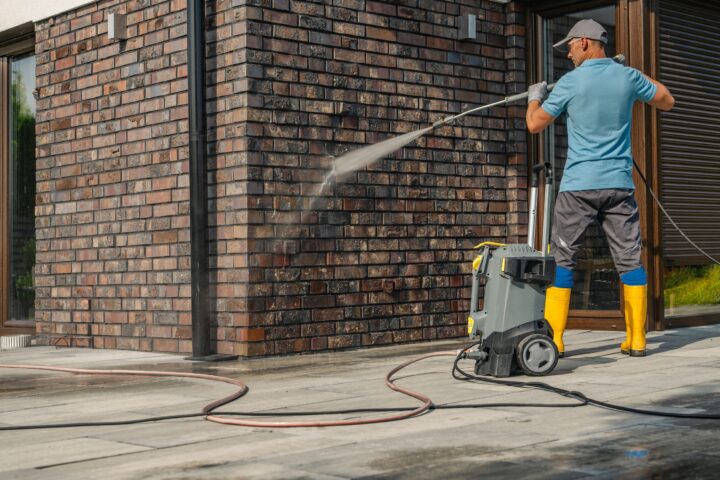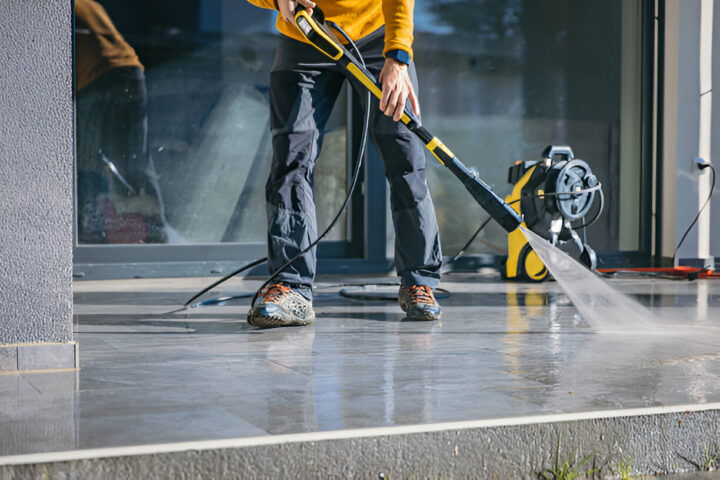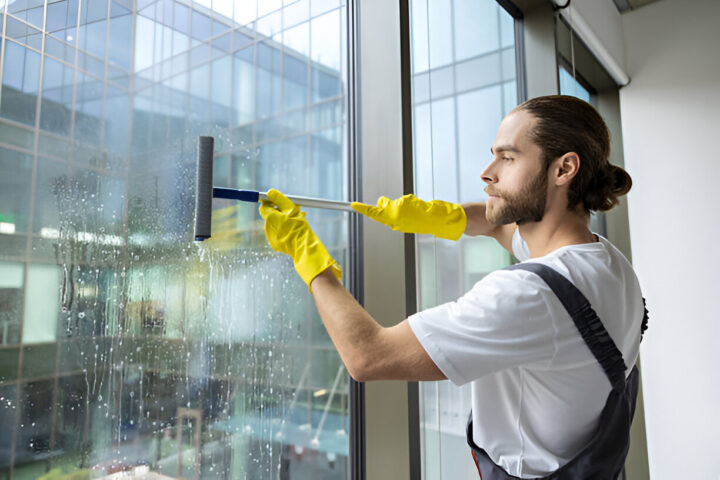Living in Orange County means soaking up the sun, enjoying scenic coastal views, and…dealing with the not-so-glamorous aftermath of urban runoff. Rainfall, irrigation overflow, and even car washing residue combine to leave behind grime, stains, and pollutants on your home’s exterior. It’s not just a cosmetic issue—it’s a maintenance must. That’s where pressure washing becomes a true superhero in your property care routine.
Whether it’s your driveway, walkway, siding, or patio, regular pressure washing helps Orange County homeowners keep their homes clean, safe, and stormwater-compliant. And when you’re ready to make your surfaces sparkle, the team at End Results has your back.
What Is Urban Runoff—and Why Is It a Big Deal in Orange County?
Urban runoff is what happens when water from rain, sprinklers, or hoses flows over hard surfaces like roofs, streets, and driveways, picking up all kinds of nasty stuff along the way. We’re talking oil, grease, fertilizers, bacteria, metals, and general gunk. That water—and everything in it—eventually flows into storm drains and straight into local creeks, rivers, and the Pacific Ocean.
In Orange County, with its dense neighborhoods and long dry spells followed by intense rain, stormwater residue tends to build up fast. And when it hits your driveway or patio? It leaves a grimy mess that’s both unsightly and potentially harmful.
Why Pressure Washing Is the Answer to Runoff Buildup
Here’s the good news: Pressure washing is one of the most effective ways to combat the aftermath of urban runoff. A well-timed wash doesn’t just make your surfaces look amazing—it also:
- Prevents long-term staining from runoff pollutants
- Helps remove slippery buildup on walkways and stairs
- Flushes away algae, mold, and mildew that thrive in damp runoff zones
- Minimizes exposure to contaminants tracked indoors
- Supports environmental home maintenance efforts by safely cleaning without harsh chemicals
And when done properly, eco-friendly pressure washing can be water-conscious and storm-drain-safe.
Where Urban Runoff Hits the Hardest
Not every surface is equally affected by runoff, but these spots in particular suffer the most from pollutant buildup and staining:
1. Driveways and Garage Entrances
Vehicles drip oil, leak fluids, and track in dirt. Add in runoff from nearby roads, and you’ve got the perfect recipe for black stains and slippery grime. Regular driveway pressure cleaning helps keep these areas safe and visually clean.
2. Walkways and Sidewalks
If your sidewalks are streaked with green or black or feel slick after a light drizzle, that’s likely due to runoff deposits. Mold and algae grow fast when water lingers, especially after heavy rain.
3. Patios and Outdoor Living Areas
From backyard BBQ residue to run-off from surrounding yards, these cozy spots can become pretty gross if not cleaned. Pressure washing helps prevent staining on pavers, concrete, and wood decking.
4. Exterior Walls and Siding
Yes, runoff can even splash up onto your walls! Especially in neighborhoods with minimal landscaping buffer zones, water picks up dirt and debris and splatters it right onto your stucco, siding, or brickwork.
Concrete Stain Removal: More Than Just a Spray-Down
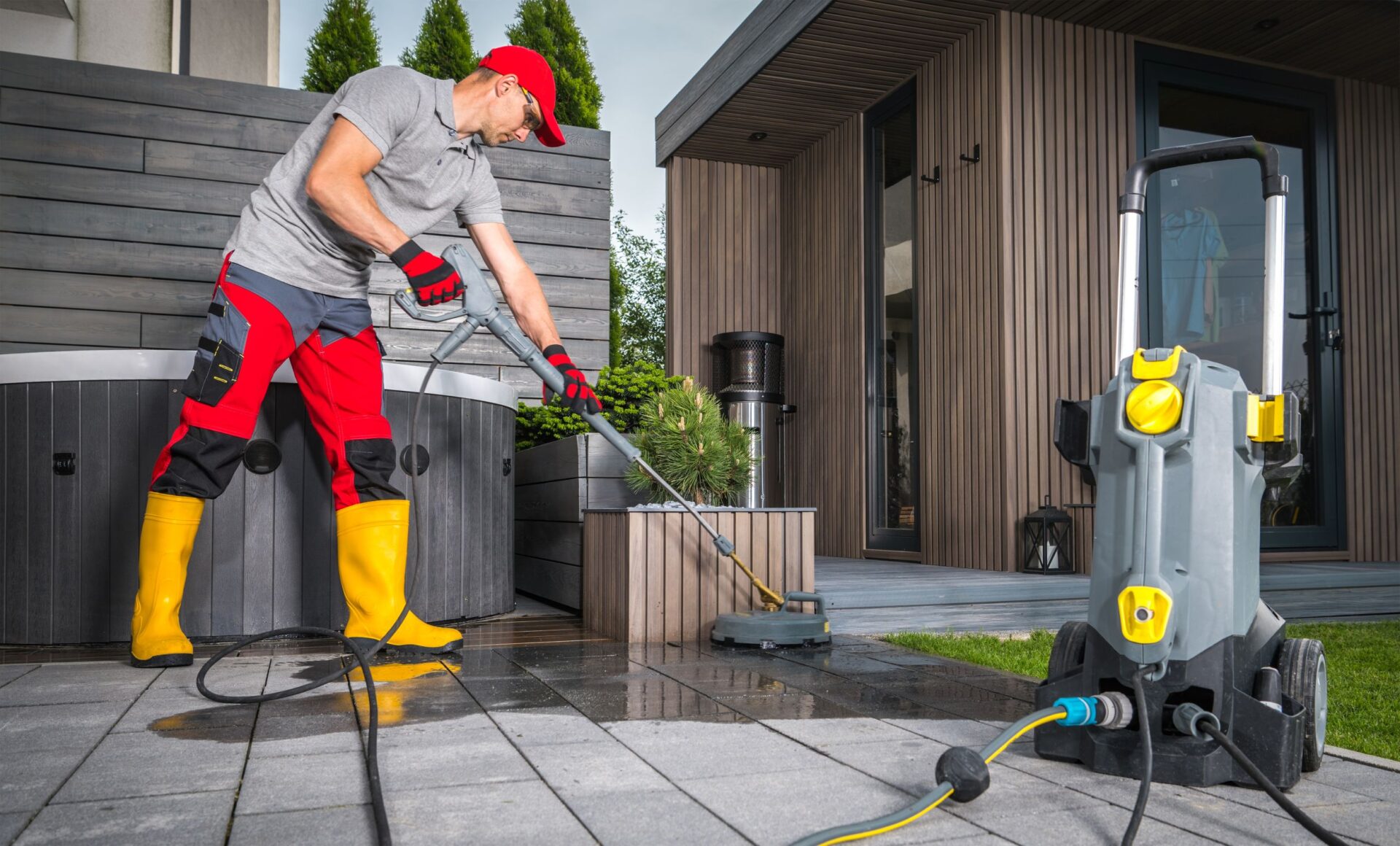
If you’ve tried scrubbing a stain on your driveway with a hose and brush and didn’t get far—you’re not alone. Runoff often leaves behind deeply embedded grime that standard tools can’t touch. Professional pressure washing uses commercial-grade equipment to penetrate the pores of concrete and dissolve stains caused by:
- Oil and grease
- Mud and silt
- Leaf tannins
- Fertilizer and chemical runoff
- Tire tracks and rubber residue
By scheduling regular cleanings, you can keep concrete from becoming permanently discolored—and extend the life of the surface.
Cleaning After Rain: Why You Shouldn’t Wait
It might sound counterintuitive, but the days right after a rainstorm are some of the dirtiest for your home’s exterior. That’s when storm drain debris and sediment wash-off reach peak levels.
You might notice:
- Mud splashes on your stucco
- Pooled water and silt at the base of your driveway
- Pollen and organic debris dried into your patio cracks
- A filmy sheen left over on your windows or siding
By tackling the grime right away with cleaning, you prevent long-term buildup that gets harder to remove later.
Signs It’s Time for a Pressure Wash
Here’s a handy list of red flags that your home is ready for a refresh:
- Driveways with black or rainbow-colored stains
- Greenish patches on walkways (mold/algae alert!)
- Concrete that looks darker than it used to
- Splash stains around gutters, downspouts, or garden beds
- Dirt streaks on lower walls or baseboards
- Foul odors around outdoor trash bins or recycling pads
When you start seeing these symptoms, don’t ignore them. A quick call to a local pro can save you time and elbow grease.
The Orange County Factor: Why Grime Builds Up Faster Here
We love the beach, the sunshine, and the fresh coastal air—but they all come with a hidden cost. Here’s why Orange County grime removal is more than just seasonal:
- Coastal Mist: Salt air deposits a fine residue on every outdoor surface, accelerating staining and corrosion.
- Traffic Pollution: Urban areas generate soot and smog, which settle into porous materials like concrete and brick.
- Dry Landscaping: Xeriscaping and rock beds reduce natural filtration, causing more dirt to wash into driveways and patios.
- Rain-After-Drought: The first rains of the season pick up a ton of pollutants and leave a mess behind.
That means even the cleanest-looking home could be dealing with hidden gunk from city pollution or rainwater contamination.
✅ Ready to Rinse Away the Residue?

If your Orange County home is showing the telltale signs of runoff damage and grime, now’s the time to take action. End Results offers fast, safe, and effective pressure washing services that target the specific issues caused by urban runoff—without harming the environment or your property.
Contact us today to schedule a customized cleaning that gets your home looking fresh again—no bucket, brush, or backache required.
Frequently Asked Questions
Can pressure washing remove paint or sealant from driveways or patios?
Yes—and that’s not always a bad thing. High-pressure settings can strip away old sealants or loose paint, which might be necessary before resealing or repainting. However, a professional will always assess the surface first and adjust the settings to ensure no damage is done to areas that should remain protected. If you’re planning to reseal, ask your cleaner to prep the area accordingly.
How does pressure washing affect property inspections or real estate showings?
Curb appeal plays a huge role in how properties are perceived during inspections or open houses—a freshly pressure-washed exterior signals proper maintenance and pride of ownership. Many agents recommend driveway pressure cleaning and patio washing before listing a home to instantly boost visual value. It’s a low-cost improvement with a high-impact return.
Are there pressure washing restrictions during drought conditions in Orange County?
Yes, but professional services are typically exempt under water-use permits or guidelines—as long as they use water-efficient methods. Reputable providers use low-flow equipment, water reclamation systems, and biodegradable products. If you’re concerned, ask your provider about their compliance with Orange County water regulations before booking.
🌧️ Don’t Forget the Roof: Gentle Cleaning Matters Too
While pressure washing is essential for managing urban runoff and keeping your property looking sharp, your roof deserves just as much attention—especially if you live in a tile-roofed home. If you’re curious how gentle roof cleaning can protect delicate tiles and extend your roof’s lifespan, check out our next read: [Tile Roofs in Los Angeles: Why Gentle Roof Cleaning Is the Key to Longevity]. It’s packed with coastal care tips every LA homeowner should know.
